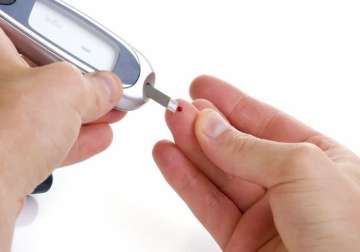Toronto: Medications for lowering glucose or sugar in diabetics may in fact increase heart failure risk inon these in these patients, new research has found.
The study that examined 14 clinical trials involving more than 95,000 patients found that for every one kg of weight gain attributed to a sugar-lowering diabetes medication, there was an associated seven percent increased risk of heart failure directly linked to that medication or strategy.
Heart failure is a common occurrence for patients with type 2 diabetes and has a major impact on one's life expectancy.
"Patients randomized to new or more intensive blood sugar-lowering drugs or strategies to manage diabetes showed an overall 14 percent increased risk for heart failure," said Jacob Udell at Peter Munk Cardiac Centre, University Health Network (UHN) and Women's College Hospital (WCH).
Four percent of patients suffered a heart failure event while being followed in the individual trials, while 9.8 per cent of patients in the study endured a major adverse cardiovascular event.
"This increased risk was directly associated with the type of diabetes therapy that was chosen, with some drugs more likely to cause heart failure than others, compared with placebo or standard care," Udell said.
"While some drugs showed an increased risk, other strategies tested, such as intensive weight loss to control blood sugar, showed a trend towards a lower risk for heart failure," said Michael Farkouh from Peter Munk Centre of Excellence in Multinational Clinical Trials, where the study was conducted.
"The results of this study could prove to be the catalyst for how diabetes patients at risk for heart disease are managed moving forward," added Barry Rubin from University Health Network.
